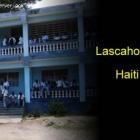September 12, U. N. Day for South-South Cooperation
ADVERTISEMENT
"South-South Cooperation" is one of the most effective ways to ensure development and alleviate poverty in the South as it decreases the dependency on donor countries in the north. It supports self-reliance through innovative technology while strengthening local and regional partners in development. Since the international intervention in 2004, two distinct Southern groupings have been working in Haiti: Argentina, Brazil and Chile (the so-called ABC countries) and the Bolivarian Alliance for the Americas (ALBA) led by Venezuela. However, with their different approaches, distinct strengths and weaknesses, their fundamental improvement over the North-South Cooperation (NSC) has remained a big question. The eleven member countries of ALBA in order of joining since 14 December 2004 are: Venezuela, Cuba, Bolivia, Nicaragua, Dominica, Ecuador, Antigua and Barbuda, Saint Vincent and the Grenadines, Saint Lucia, Grenada and the Federation of Saint Kitts and Nevis.
The United Nations Office for South-South Cooperation (UNOSSC) manages the United Nations Fund for South-South Cooperation (UNFSSC). South-South cooperation today expands beyond mere humanitarian assistance and goodwill endeavors. Brazil's cooperation with Haiti, especially in the health area, was scaled up following the devastating 2010 earthquake. Brazil has led the United Nations peace-keeping process (MINUSTAH) in Haiti since 2004
Read more: South America, Newsletter Articles, International
« Timing, very important on a decision to buy a car | Main | Some of the worst New Car-Buying Mistakes »
Leave a Reply
Name (required) E-mail (required, will not be published)
» »
Our objective is to share with you news and information about Haiti and the people of Haiti. Traditions, habits and the way we were or grew are alive in this site. We highly recommend that you Subscribe to our Newsletter and also share with us some of the things that are memorable and made us unique people.


 Haiti tech Summit
Haiti tech Summit  Lascahobas, Haiti
Lascahobas, Haiti  Black Friday Shopping Season
Black Friday Shopping Season  Haitian Creole Translation
Haitian Creole Translation  Haitian Thanksgiving
Haitian Thanksgiving